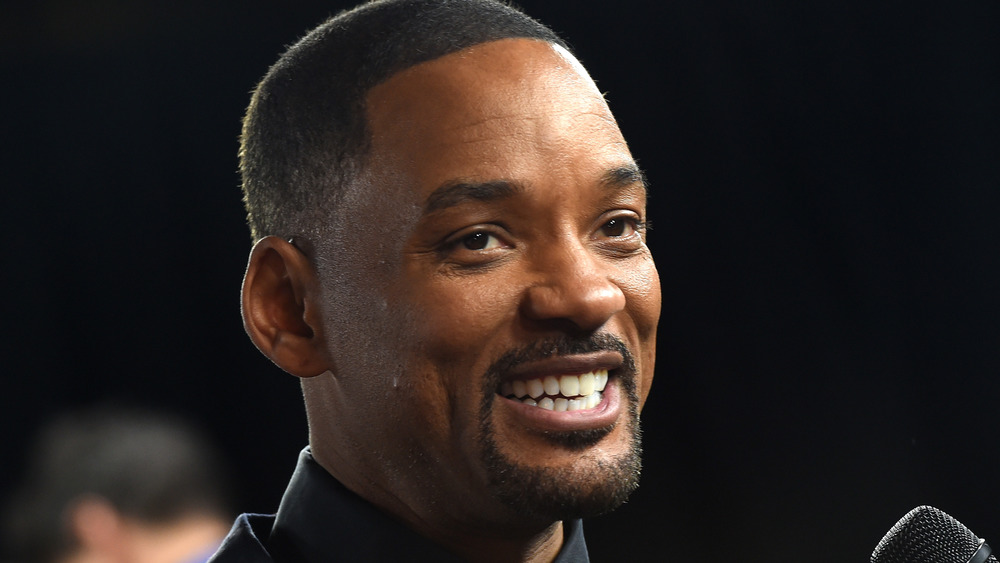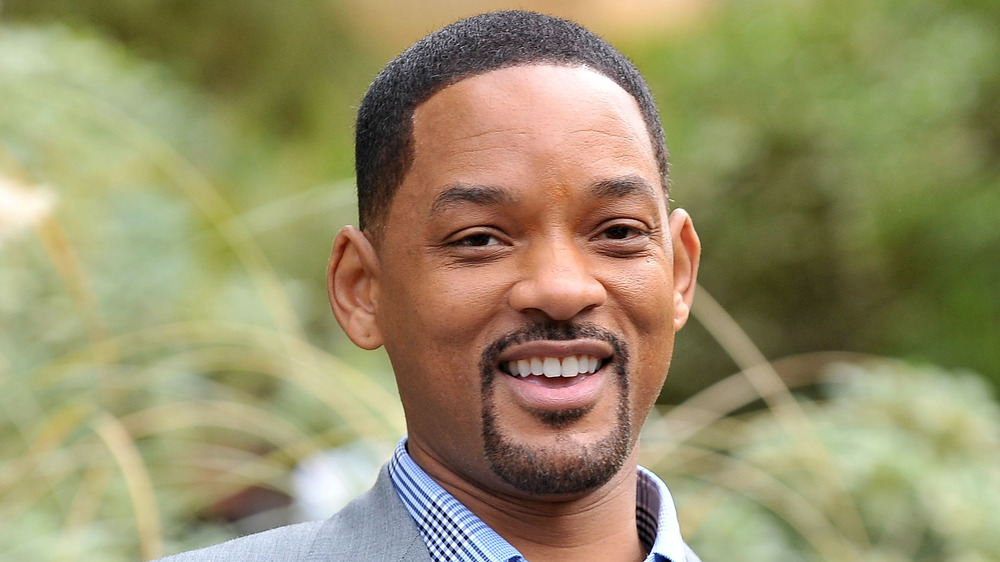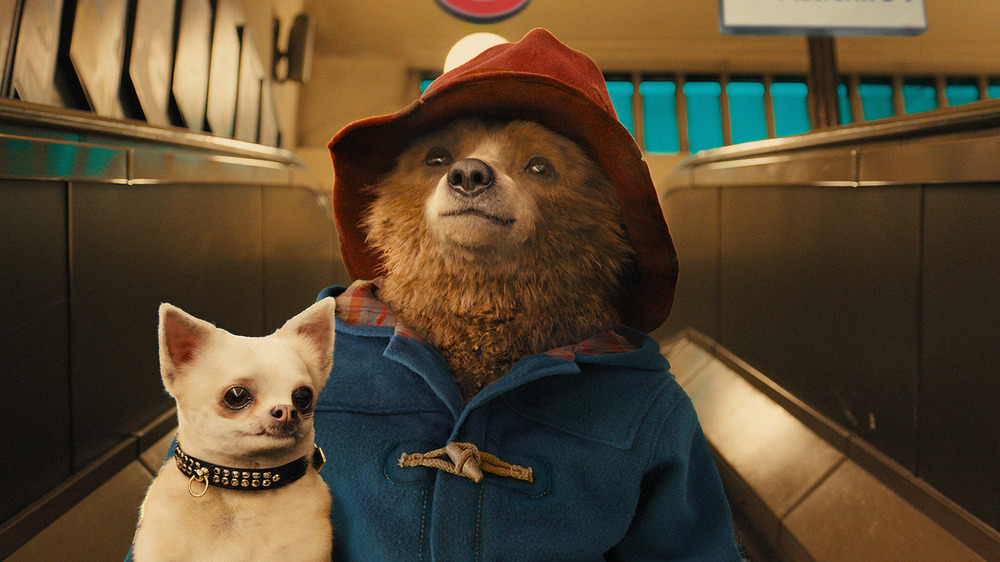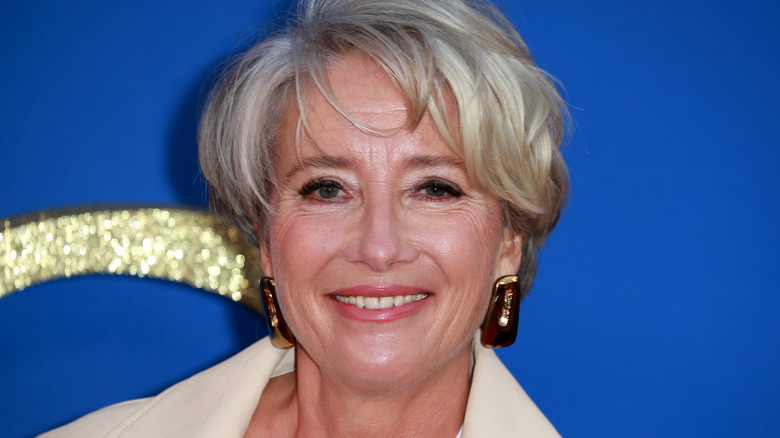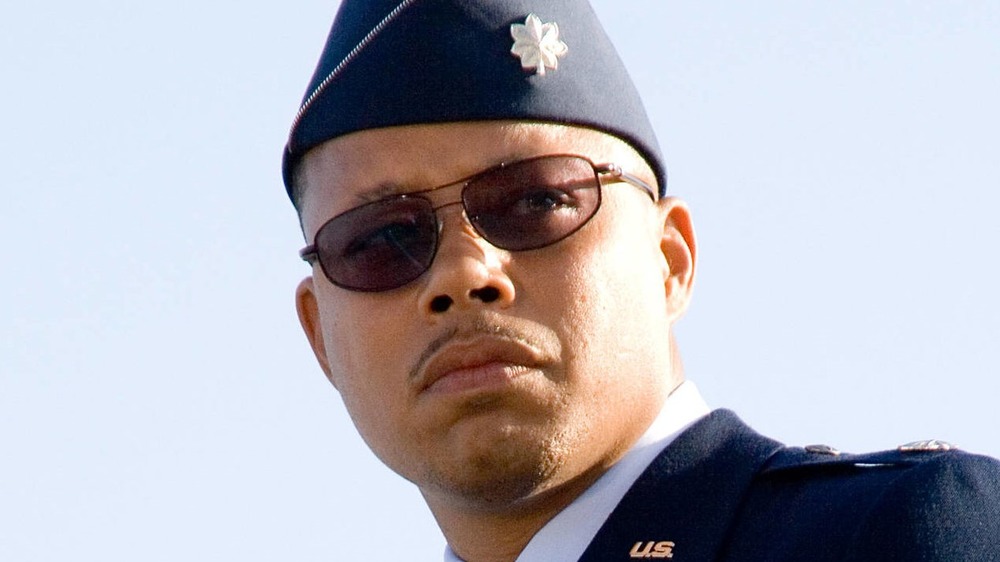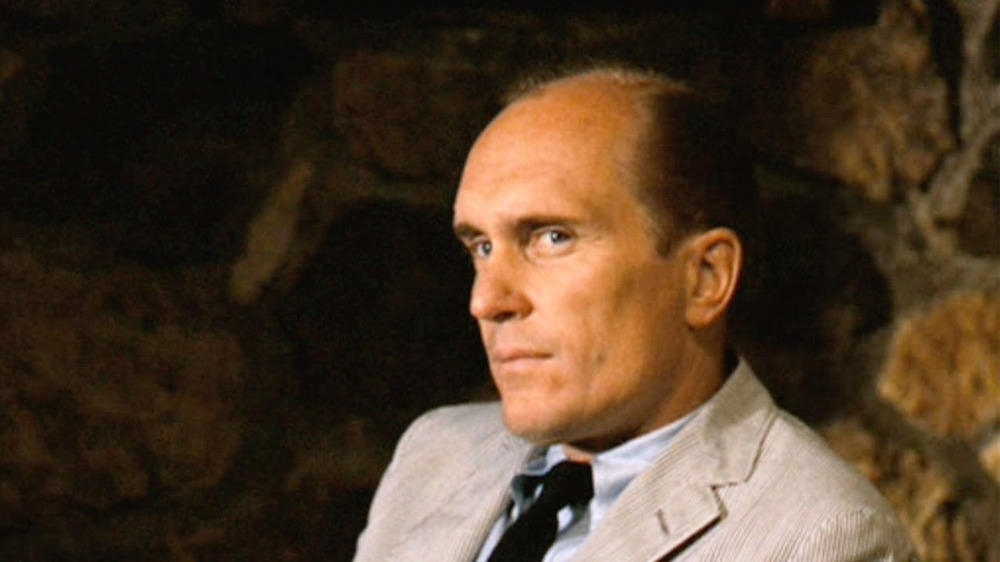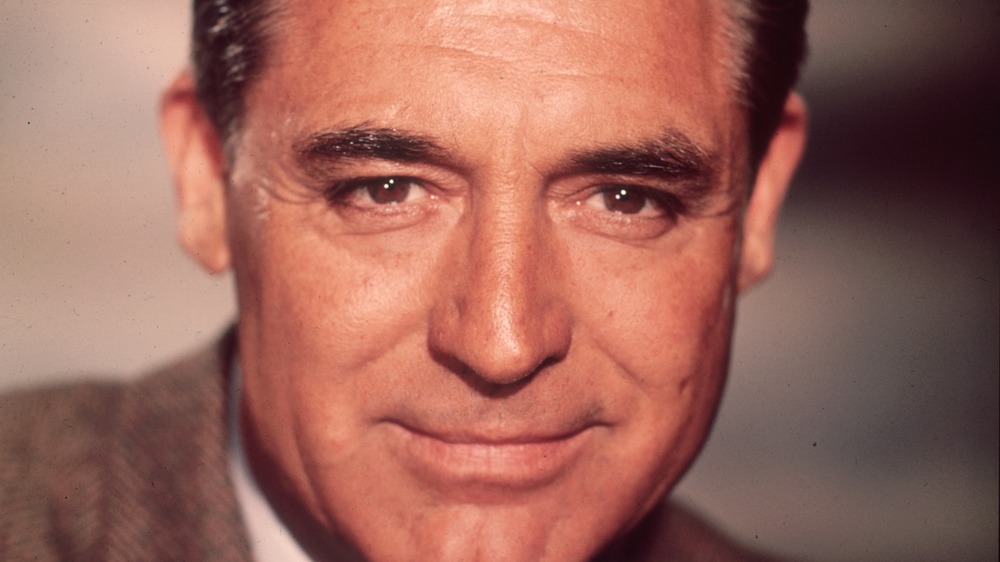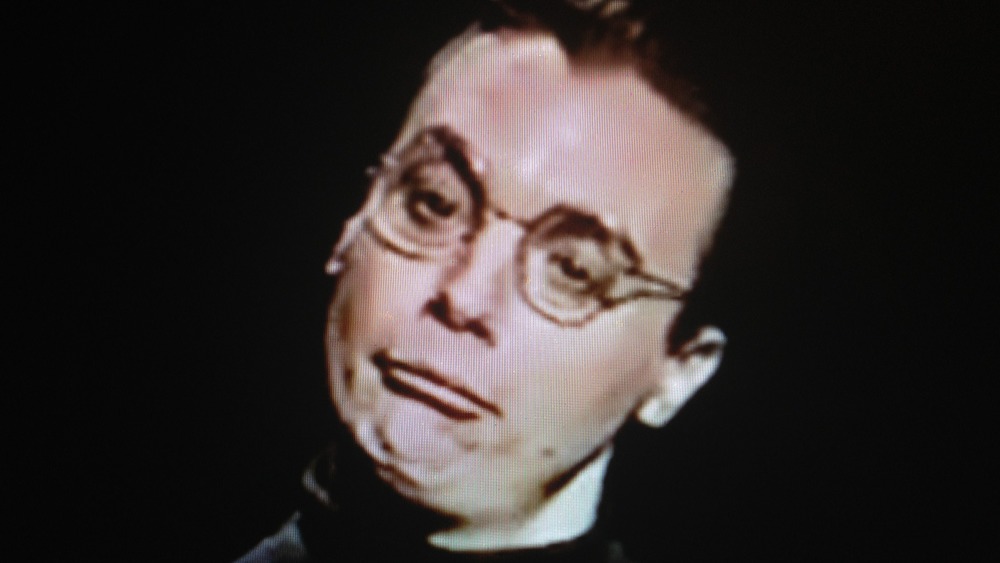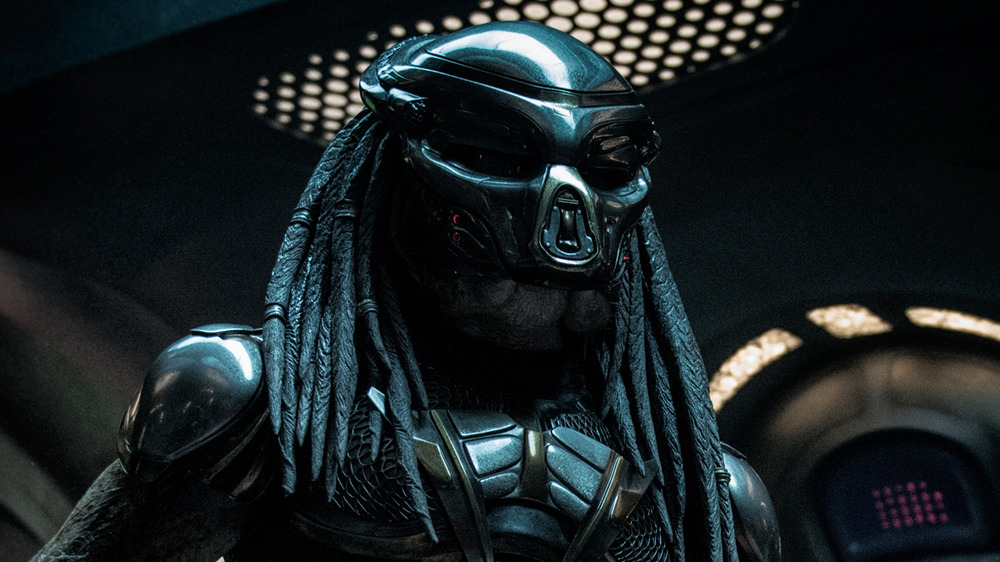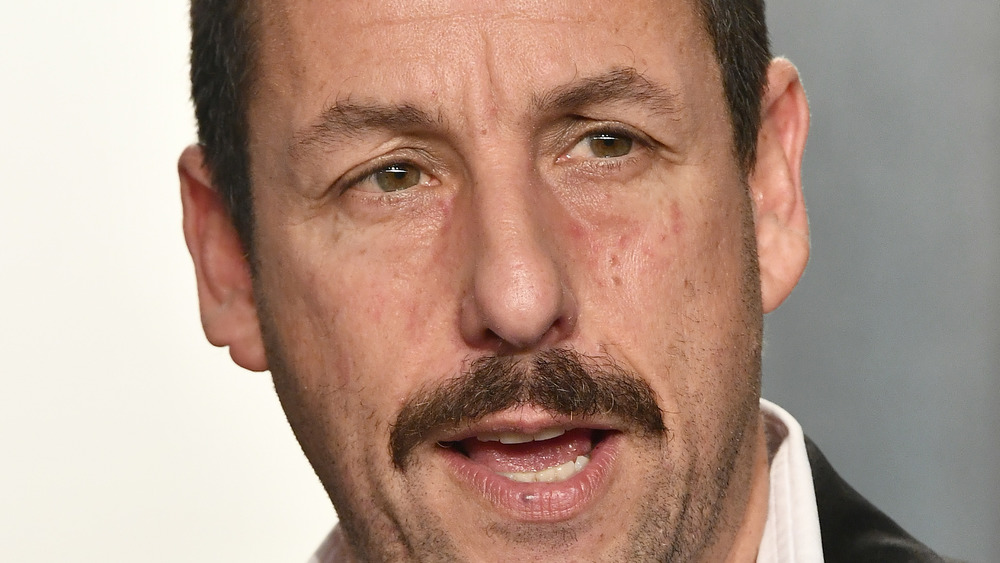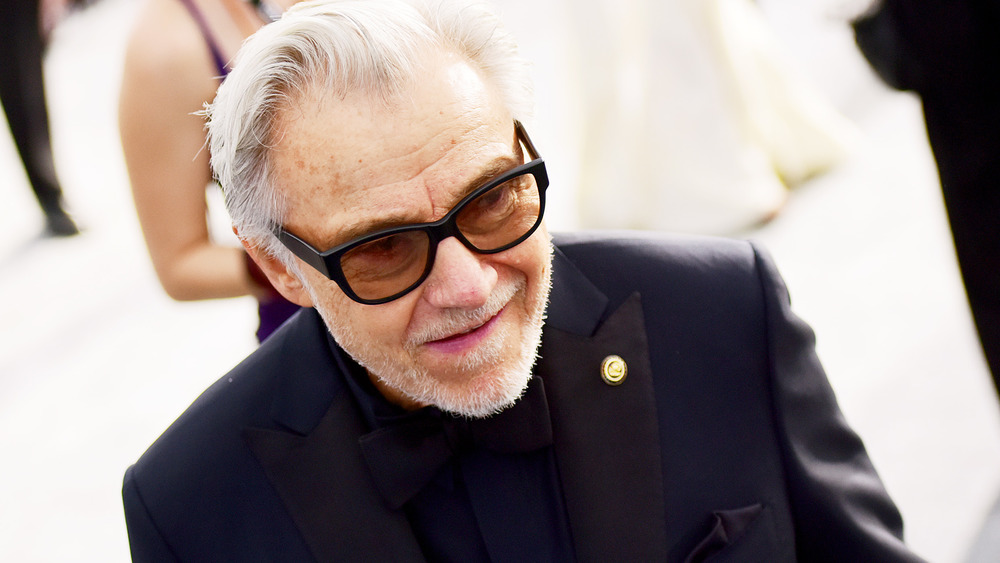Movies That Actors Refused To Be A Part Of
It's rare in Hollywood for somebody to get their first choice of actor for a certain role. Sometimes it's nothing personal, but just some normal showbiz difficulties. A whole swarm of details can prevent a performer from taking on a movie. Perhaps their schedule was full or they have contractual obligations that are keeping them form participating. But in other instances, actors make a conscious choice not to be a part of certain movies. The reasons behind these choices can vary wildly. Sometimes, an actor just doesn't get along with a certain actor or filmmaker. Other times, an element of the script rubs them the wrong way or payment issues lead them to walk.
Whatever the reason, the history of Hollywood is rife with stories of famous faces who refused to be a part of certain movies. Some of those films went on to become timeless classics, while others went on to be largely forgotten. No matter the outcome of the movie, though, they all prove that the practice of major stars explicitly refusing to be a part of a certain movie is as eternal a part of Hollywood as anything else.
Will Smith in Django Unchained
If it's a modern-day Quentin Tarantino movie, you can expect big-name actors to inhabit the lead role. While Tarantino got his start in indie films like Reservoir Dogs headlined by scrappier cats, the last 11 years of his films have been headlined by the likes of Brad Pitt, Leonardo DiCaprio and Samuel L. Jackson. Also among Tarantino's recent leading men is Jamie Foxx, who played the titular role of Django in Django Unchained. The Oscar-winning Foxx is already a big name in his own right, but originally, an even more prolific movie star was in talks to take on the part of Django.
Will Smith was originally approached for the role. If he had accepted, it would have been a major coup for the production, particularly since his then go-to movie studio, Columbia Pictures, was co-financing it. However, Smith ended up turning Django down. Though it may sound like a strange notion to turn the lead role in a Quentin Tarantino movie, Smith had his reasons for saying no to the project. "Django wasn't the lead, so it was like, I need to be the lead. The other character was the lead!" Smith explained in 2013. "I was like, 'No, Quentin, please, I need to kill the bad guy!'" Though Smith passed on the part, it turned out to be a major win for Foxx. Django Unchained proved to be Foxx's second biggest live-action film ever at the worldwide box office.
Colin Firth and Paddington
As the likes of Aladdin and Shrek can attest, casting celebrities in voice-over roles can be a great way to drum up publicity for your family movies. So it was no surprise that, as the first Paddington movie was finally coming together, the producers had managed to score a big name to voice the lovable bear. Colin Firth was set to take on the role and his participation in the project proved to be an attention-grabbing aspect of the movie. Outlets like The Guardian and the BBC emphasized Firth above all other cast members in the film in their reports on the project's development. His casting also made it Firth's latest collaboration with the Weinstein Company. Firth had previously scored a Best Actor Oscar for starring in the Weinstein Company release The King's Speech.
As the marketing for Paddington began with two teasers, the titular bear didn't utter a word between the two trailers. This turned out to be an accidental omen for Firth's impending participation in the project, which ended in June 2014 when Firth voluntarily stepped away from the role. "It's been bittersweet to see this delightful creature take shape and come to the sad realization that he simply doesn't have my voice," Firth said in a statement. A month later, Ben Whishaw was chosen for the part instead, which he would go on to reprise in sequels and a Nick Jr. TV show.
Emma Thompson and Luck
In the wake of leaving Disney after misconduct allegations, John Lasseter didn't have to wait long for another high-profile job. At the start of 2019, Lasseter was hired to run Skydance Animation. The decision was met with negative responses from all over Hollywood, including Skydance's distributor Paramount Pictures, which informed its own animation department it was not required to interact with Lasseter. Also displeased with Lasseter's hiring were female employees at Skydance and acclaimed actress Emma Thompson, one of the stars of Skydance Animation's inaugural movie Luck.
In February 2019, Thompson, despite having already started voice work for the film, quit Luck. In departing the project, Thompson wrote a letter outlining the reasons for her departure, all of which concerned Lasseter being hired to run Skydance Animation despite his previous behavior towards women. Among the questions raised in Thompson's letter about Lasseter were, "If a man has made women at his companies feel undervalued and disrespected for decades, why should the women at his new company think that any respect he shows them is anything other than an act that he's required to perform..." Also in this letter, Thompson discussed how Skydance Animation employees were left out of the decision while closing the piece by expressing hope in improving the world for her daughter.
Terrence Howard and Iron Man 2
When the original Iron Man was being put together, the whole project was a risk. The initial Marvel Studios projects were independently financed outside of the major studio system and starred relatively obscure superheroes like Iron Man and Thor. Plus these films didn't have conventional summer blockbuster leads. Instead, they starred actors like Robert Downey Jr. and Chris Hemsworth who were either reviving or just starting their careers. Casting Terrence Howard — best known up to that point for Crash and Hustle & Flow – as James Rhodes in the first Iron Man reinforced this perception.
Howard's time as a summer blockbuster actor would end up being a one-and-done, though, as the actor declined to reprise his role as Rhodes in Iron Man 2. Don Cheadle was cast in his place, leading to speculation on the factors that led to Howard's departure from the role. Eventually, Howard revealed that he had walked away from Rhodes due to frustration over the salary he was offered. "They came to me [for] the second and said, 'We will pay you one-eighth of what we contractually had for you, because we think the second one will be successful with or without you,'" Howard recalled. "And I called my friend that I helped get the first job, and he didn't call me back for three months." The original Marvel Cinematic Universe movies were full of risk-taking, but giving Howard his desired salary was one risk too far.
Robert Duvall and The Godfather Part III
The Godfather Part III brought back a number of familiar faces from prior installments in the series, including Al Pacino, Diane Keaton and Talia Shire. However, one famous face from the preceding Godfather movies was missing. Robert Duvall, who had portrayed Tom Hagen in the franchise, was nowhere to be seen in The Godfather Part III. This was not the original intent of the project, but rather a consequence of Duvall refusing to be a part of the proceedings.
In 2004, Duvall reflected that pay disputes were at the heart of his refusal to be a part of The Godfather Part III — specifically, the disparity between the salaries of himself and Al Pacino. "If they paid (Al) Pacino twice what they paid me, that's fine, but not three or four times, which is what they did," Duvall remarked. With that sizeable financial chasm between himself and Pacino, Duvall decided to simply walk away from the entire production. Hagen was then written out of the movie with new character B.J. Harrison (George Hamilton) essentially taking over for Hagen in the story. Though he missed out on the chance to appear in a financially successful sequel that scored a Best Picture nomination, Duvall has not expressed any regrets about passing on the chance to be in The Godfather Part III. Given the mixed reputation the film has taken in the years since its release, it's understandable why.
Cary Grant and Love in the Afternoon
The 1957 rom-com Love in the Afternoon originally only had one actor in mind for its male lead: Cary Grant. How could anyone not want Grant to be a part of their production? By the late 1950s, Grant had established himself as one of the icons of the silver screen thanks to appearances in classic films like Notorious and Bringing Up Baby. Pairing him up with Love in the Afternoon director Billy Wilder, the filmmaker behind such titles as Double Indemnity and Some Like It Hot, was sure to make for a cinematic treat.
Unfortunately for the production, Grant refused to take on the lead role. It was the latest instance of Grant turning down parts in Billy Wilder films, following the likes of Sabrina. Initially, his reasons for refusing the role were kept mysterious. In the years since Love in the Afternoon's release, though, it emerged that Grant was uncomfortable with the age difference between himself and the film's leading lady, Audrey Hepburn. Eventually, Gary Cooper took on the role even though he was 28 years Hepburn's senior, an age gap that was widely attributed to causing Love in the Afternoon's downfall at the box office. Perhaps Grant was on to something with his idea that Hepburn needed a love interest closer to her own age.
Mike Myers and Dieter
Mike Myers is no stranger to feature film adaptations of Saturday Night Live sketches thanks to his headlining two Wayne's World movies. Myers almost returned to this well once again with a film based on the character of Dieter. A German talk show host, Myers' Dieter was always a hit on SNL with his eccentric behavior. The character's popularity grew to the point that he even spawned a number of memorable catchphrases such as "Touch my monkey!" The character certainly seemed beloved enough to warrant a feature film, which was put into production with a script written by Myers and a cast that included heavyweight comic actors such as Will Ferrell and Jack Black, the former of whom had acted opposite Myers in a number of Dieter sketches on SNL.
In June 2000, though, Myers backed off the project, citing a dissatisfaction with how the script was turning out. That was not the end of the project, though, far from it. In the wake of Myers abruptly leaving the production, both Universal and Imagine Entertainment hit Myers with separate lawsuits. Among the claims in these lawsuits were that Myers had backed out of promises and had wasted millions in dollars. After Myers filed his own counter lawsuits, the cases were settled out of court and Myers agreed to do The Cat in the Hat for both Universal and Imagine. Thus, the saga of Dieter on the big screen was brought to a close.
Jean-Claude Van Damme and Predator
Over the years, numerous different actors have played the extra-terrestrial hunter The Predator. Kevin Peter Hall portrayed the creature in the first two Predator movies while Derek Mears and Brian A. Prince, among others, have portrayed Predators in 21st-century installments of the franchise. Once upon a time, though, a big-name action star in the form of Jean-Claude Van Damme was cast to play the Predator.
Visual effects artist Steve Johnson explained that the casting of Van Damme conflicted with creative desires for the Predator. "They wanted to just tell the guy to hop around like a frog and it was Jean-Claude Van Damme who had no idea what he was getting into...He thought he was going to show his martial arts abilities to the world," Johnson recalled. "Jean-Claude comes in and we're fitting him in this red suit...and he was, 'I hate this. I hate this. I hate it. I look like a superhero.' He was so angry."
Van Damme would later confirm his frustrations with the costume, although he added that concerns regarding how safe it was to perform stunts in the outfit were ultimately what led him to walk away.
Adam Sandler in Inglourious Basterds
In his film career, Adam Sandler has inhabited a wide range of characters. The son of Satan. A lethal assassin turned hair stylist. But one area he didn't expand into was the world of Quentin Tarantino cinema. The Pulp Fiction director eyeballed Sandler for a role in Inglourious Basterds — specifically, the role of The Bear Jew. However, Sandler refused to come onboard and opted to do the Judd Apatow movie Funny People instead. While Sandler hasn't publicly spoken what led him to not want to join the Basterds on their mission, it is worth mentioning that the actor has refused to take certain roles on account of their extreme violence in the past. When approached to headline the action/comedy Knight and Day, Sandler said no on the basis of "I just don't see me with a gun." It's entirely possible Sandler also couldn't see himself inhabiting the similarly violent role of The Bear Jew, who uses a baseball bat to destroy the heads of Nazis.
With Sandler turning him down, Tarantino turned to Hostel director Eli Roth to take on the part of The Bear Jew. Not only did Roth accept the role, but he ended up taking on extra duties within the production itself by also helming the fictitious Nazi propaganda film Nation's Pride, a parody of real-world works by Nazi propagandists like Leni Riefenstahl.
Harvey Keitel and Eyes Wide Shut
Working with Stanley Kubrick is never a picnic, as performers like Shelley Duvall would attest. The perfectionist tendencies of this filmmaker have become part of Hollywood legend, for better and for worse. One actor, though, found Kubrick's creative process to be so arduous before cameras even started rolling that he couldn't stick around for when filming actually started. That actor was none other than Harvey Keitel, who was originally cast in the major role of Victor Zeigler in what would end up being Kubrick's final film, Eyes Wide Shut.
Keitel's problems with Eyes Wide Shut emerged as the project kept delaying its start date due to Kubrick's meticulous nature in pre-production. As things dragged on, Keitel struggled to maintain his commitment to the project. Realizing that this laborious creative process would endure once cameras began to roll, Keitel eventually opted out of the production, with initial reports saying that scheduling conflicts with Saving Graceland prevented Keitel from taking on Eyes Wide Shut. However, in the years since, it's been revealed that Keitel voluntarily left the film due to its endless delays. After Keitel vanished, Kubrick managed to get Sydney Pollack to take over the role instead.
Over his career as an actor, Harvey Keitel has worked with iconic filmmakers like Wes Anderson and Martin Scorsese. However, his departure from Eyes Wide Shut indicates that one seminal director Keitel was never meant to work with was Stanley Kubrick.
